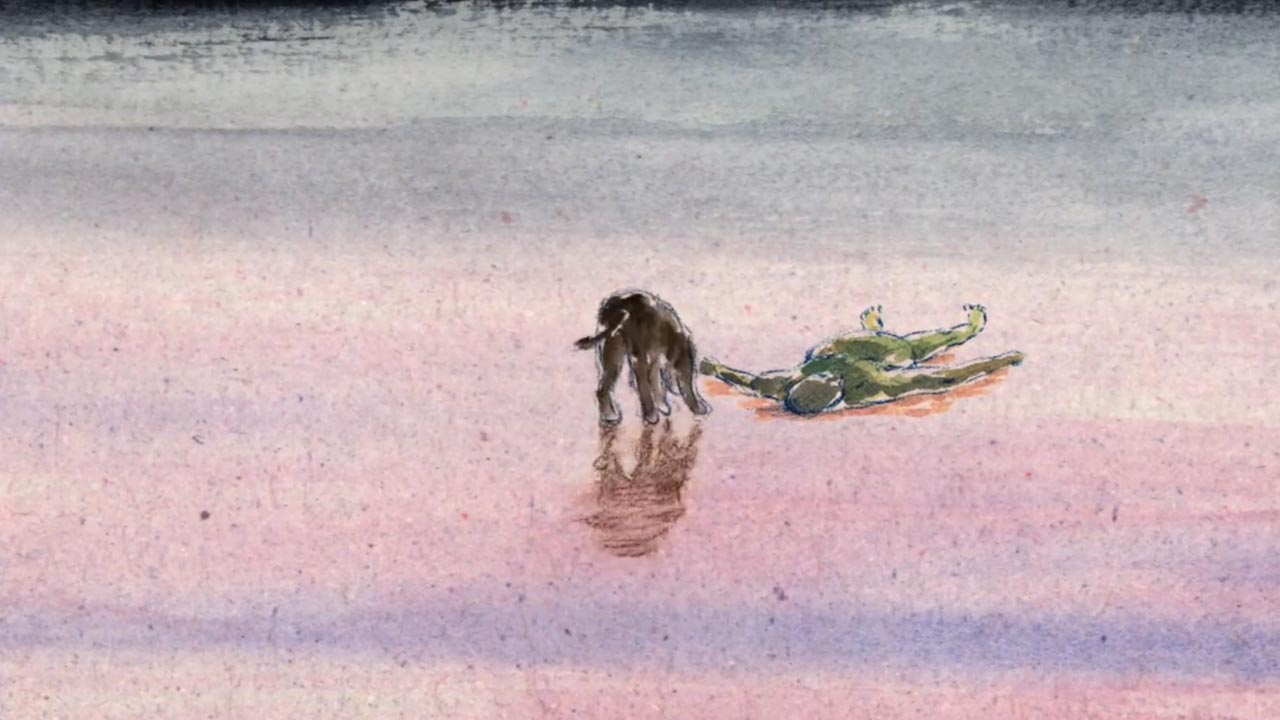The Mission: the arc of Abraham in The Walking Dead
The Walking Dead is one of those shows that it probably seems like I hate more than I really do. I'm still watching it, aren't I? And even when I gripe about the way the show lurches from action-set-piece-head-blasting-a-go-go to contemplative-no-movement-yawn-a-rama, I do still appreciate the character work they knuckle into to give us meaty moments.
Such a case was with the episode Always Accountable.
A lot of the attention for this episode focused on Daryl's story: laying the groundwork for a new batch of villains, some tense action, and of course the internet's favourite backwoods reformed racist doing what he does best (grunting, sweating, etc. (I kid, Daryl is awesome)). In the background, though, between crossbow bolts and backstabbing, a quieter, smaller arc was unfolding between Sasha and Abraham.
To be honest, I was only half-invested in this little plot. Literally. Sasha is, for me, perhaps the most poorly-drawn lead character on the show. She is largely defined by the men around her: Tyreese, Bob, and now, weirdly, Abraham. Her brief descent into madness and grief after Bob and Tyreese's deaths simply didn't resonate for me, in part because Tyreese's death was so utterly contrived as to be laughable.
Abraham, however, has for me transitioned from being a cartoonish caricature to one of the most engaging and interesting characters on the show. When we first met Abraham, he looked like he had stepped right off of the comic page, and not in a good way. He, Rosita, and Eugene seemed to inhabit a strange world outside of the gritty horror that has become the staple of The Walking Dead. They were...goofy, frankly.
But then, Self Help came along. Granted, the fact that it took 11 episodes to get any kind of real development for these characters is kind of a sin in of itself, but I forgive it on the basis that the Walking Dead crew were dealing with cannibals and such.
Self Help is a tremendous turning point in Abraham's character. We'd had some hints of his single-minded obsession with getting Eugene to Washington before, particularly in his confrontation with Rick in the church, but in this episode we finally get to the meat of his backstory. Abraham's life in the initial days of the apocalypse unfolds in flashbacks with a gauzy haze filtered over them. We see him protecting his wife and children, but in so doing he unleashes an animalistic fury that ends up driving them away. That same fury comes back at the end of the episode, when he discovers that Eugene has been lying, and subsequently beats him to within an inch of his life.
By itself, this episode was utterly heartbreaking and seemed without hope at the end. Abraham breaks down, crying, and flashes back to when he finally caught up to his family, only to find them already dead. In that moment, feeling he had nothing left, he put the barrel of his gun in his mouth, and only Eugene's sudden appearance stopped him. Ouch.
Taken with Always Accountable, however, Self Help forms a compelling forward movement in Abraham's character. The key lies in Eugene's line that stops Abraham from pulling that trigger: "I have a very important mission for you."
We all love a good mission, don't we? Missions are the bread and butter of manly men. Give us a mission, with parameters and objectives and enemies, and we'll march over hell and high water to see it through. A mission doesn't have to be military in nature, either. It could be a mission to get that girl, find that job, seal that deal, beat the other team. The only requirement? It comes with a complete lack of accountability.
When you convince yourself that you're only living for one purpose, you reach a point where every ends justify every means. This is laid out for Abraham by Sasha:
You jump out of an airplane you don't have to make choices after that.
...But if you have a roof over your head. You have food, you have walls. You have choices. And without walkers, and bullets, and shit hitting the fan. You're accountable for them. And hell, you're always accountable. It's just, with all that other noise, you know people won't notice.
If you scream loudly enough that your mission is all that matters, you're not just trying to convince others around you, you're trying to convince yourself. In so doing, you're trying to find a way to forgive your own bad behaviour. During the height of the Gamergoober (I will not type "gate" for fear of bringing their bullshit to our doorstep) controversy, I recall one prolific tweeter screeching that they should "Keep it up...we've almost won this."
"It" in "keep it up" referring, of course, to a campaign of hatred, doxxing, bile, and filth. All for the objective of beating some vaguely defined enemies in order to...well, the final goal was never really crystal clear, was it?
Abraham realizes, in Always Accountable, that he can live a proper life now, not one defined by a mission. Whether he relapses into old habits remains to be seen, but he acknowledges that now is the time to start building to something, not to be rampaging and tearing down.
We all have to reach that point eventually, where we outgrow the childish fantasy of playing soldier, and trade in the mission for life. Let's just hope we reach it before someone really gets hurt.













































































